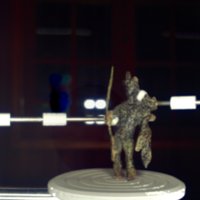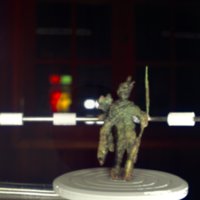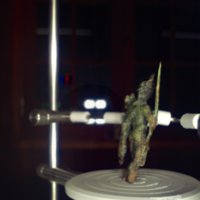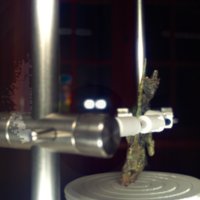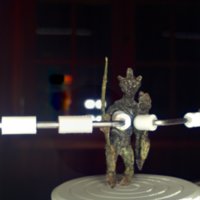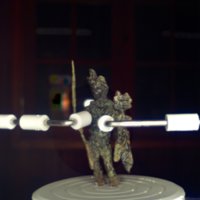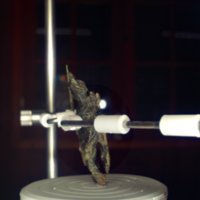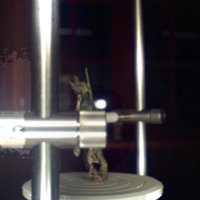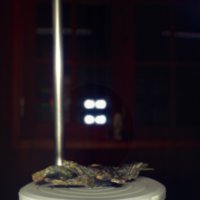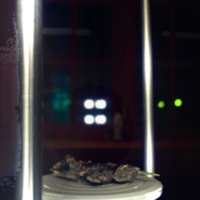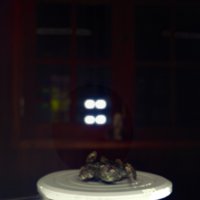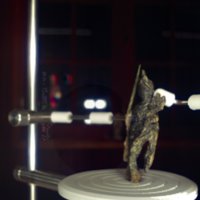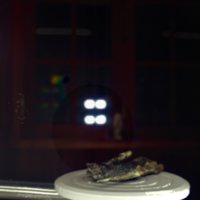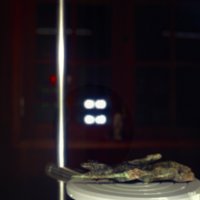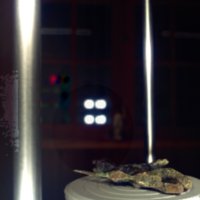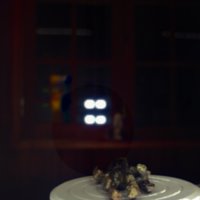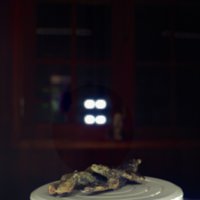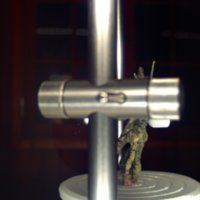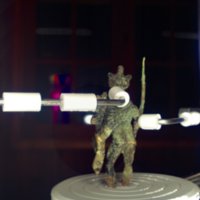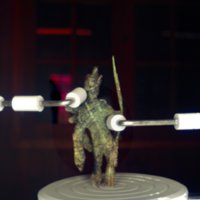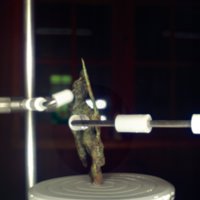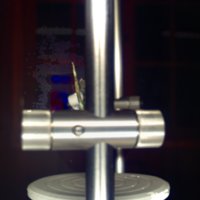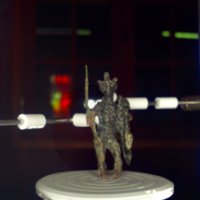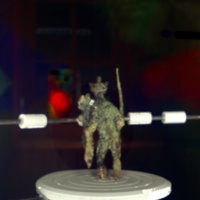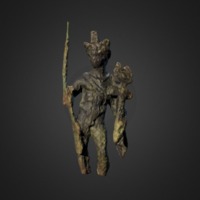Estátua de bronze de mercúrio - Mercury bronze statue
Dublin Core
Title
Estátua de bronze de mercúrio - Mercury bronze statue
Subject
CULTURAL HERITAGE
Description
Escultura antropomórfica encontrada na vila romana da Quinta de S. João / Quinta da Laranjeira (Arrentela, Seixal), utilizada nas práticas culticais do período romano (entre os séculos III e IV). Fundido em bronze, foi posteriormente modificado pela aplicação de uma haste de latão soldada ao braço direito, parcialmente amputado. Mercúrio está de pé e é considerado um jovem nu, coberto apenas com um manto sobre o tronco. Vestindo um chapéu com duas asas pequenas e segurando na mão esquerda o caduceu, pau onde entrelaçam duas cobras. O fim dos membros inferiores está quebrado. Um dos atributos mais comuns está faltando, a bolsa de moedas tradicional realizada pela mão direita, substituída pela haste de latão. A superfície achatada disto na extremidade inferior sugere que pode representar um remo, talvez pedindo proteção divina para a navegação e o comércio fluvial e marítimo que na época já caracterizavam o estuário do rio Tejo.
Anthropomorphic sculpture found in the roman villa at Quinta de S. João / Quinta da Laranjeira (Arrentela, Seixal), used in cultic practices in the Roman Period (between 3rd and 4th centuries). Casted in bronze, was further modified by application of a brass rod welded to the, partially amputated, right arm. Mercury is standing and figured as a young naked man, covered only with a mantle over his torso. Wearing a hat with two small wings and holding in the left hand the caduceus, stick where interlace two snakes. The end of the lower limbs is broken. One of the most common attributes is missing, the traditional coin purse held by the right hand, replaced by brass rod. The flattened surface of this at the lower end suggests that may represent an oar, perhaps calling for divine protection for navigation and the fluvial and maritime trade which at the time already characterized the estuary of the Tagus river.
Format
text/plain Alias/WaveFront Object
Type
3D Object
Extent
7.3cm x 3.3cm x 1.9cm
Spatial Coverage
current,38.629633,-9.105208;
License
Creative Commons Attribution-NonCommercial-ShareAlike License
Europeana
Object
https://sketchfab.com/models/15ae8f3182424133a599c0801e87a588/embed
Europeana Type
3D
3D Object Item Type Metadata
Wiki
https://eu-lac.org/vmwiki/index.php/Estátua_de_bronze_de_mercúrio_-_Mercury_bronze_statue
DescriptionEN
Escultura antropomórfica encontrada na vila romana da Quinta de S. João / Quinta da Laranjeira (Arrentela, Seixal), utilizada nas práticas culticais do período romano (entre os séculos III e IV). Fundido em bronze, foi posteriormente modificado pela aplicação de uma haste de latão soldada ao braço direito, parcialmente amputado. Mercúrio está de pé e é considerado um jovem nu, coberto apenas com um manto sobre o tronco. Vestindo um chapéu com duas asas pequenas e segurando na mão esquerda o caduceu, pau onde entrelaçam duas cobras. O fim dos membros inferiores está quebrado. Um dos atributos mais comuns está faltando, a bolsa de moedas tradicional realizada pela mão direita, substituída pela haste de latão. A superfície achatada disto na extremidade inferior sugere que pode representar um remo, talvez pedindo proteção divina para a navegação e o comércio fluvial e marítimo que na época já caracterizavam o estuário do rio Tejo.
Anthropomorphic sculpture found in the roman villa at Quinta de S. João / Quinta da Laranjeira (Arrentela, Seixal), used in cultic practices in the Roman Period (between 3rd and 4th centuries). Casted in bronze, was further modified by application of a brass rod welded to the, partially amputated, right arm. Mercury is standing and figured as a young naked man, covered only with a mantle over his torso. Wearing a hat with two small wings and holding in the left hand the caduceus, stick where interlace two snakes. The end of the lower limbs is broken. One of the most common attributes is missing, the traditional coin purse held by the right hand, replaced by brass rod. The flattened surface of this at the lower end suggests that may represent an oar, perhaps calling for divine protection for navigation and the fluvial and maritime trade which at the time already characterized the estuary of the Tagus river.
Files
Collection
Citation
“Estátua de bronze de mercúrio - Mercury bronze statue,” EU-LAC, accessed February 22, 2026, https://eu-lac.org/omeka/items/show/200.
Embed
Copy the code below into your web page

